Posted on by scarc
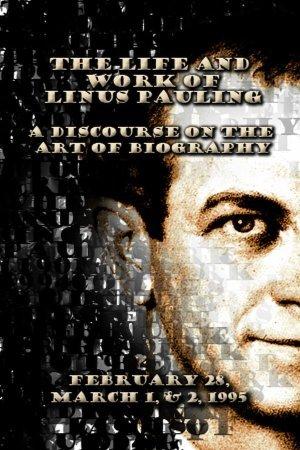
A little more than six months after Linus Pauling died, a remarkable gathering took place at Oregon State University. A conference titled "The Life and Work of Linus Pauling: A Discourse on the Art of Biography," was held in Corvallis over the course of three days and featured presentations by a great many individuals who knew Pauling or had studied his life closely. The keynote address was delivered by Francis Crick on the evening of February 28, 1995; the date that would have been Pauling's 94th birthday. In the day and a half that followed, reflections were offered by a wide array of former students, family members, and scholars from across the country.
One particular session was devoted to "The Biographer's Picture of Linus Pauling," and it is to this set of reflections that we turn our attention today. Included below are observations made by four individuals who, by 1995, had already spent many years researching Pauling's life and work, and whose insights serve to complicate and sophisticate the scholarly understanding of Pauling as a historical figure and as a human being.
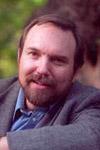
Thomas Hager, author of Force of Nature: The Life of Linus Pauling (1995).
Pauling's father worked twelve hours a day as a druggist, teaching his son the value of both hard work and the importance of giving a good face to the public, and then died when Pauling was nine. The death of his father was a traumatic and defining event in Pauling's life, one to which can be traced many of his emotional and intellectual characteristics. He spent a good deal of his life looking for surrogate fathers, father-figures that he at first found among his neighbors - one of whom got him interested in Greek; then his teachers - his high-school chemistry teacher was one; and later among men like Einstein, who served as Pauling's political father.
It is this nine-year-old boy, bereft of a father, left in the care of a sickly and unloving mother, a mother who did not understand education or science, who constantly nagged her son, and who died in an insane asylum, who became Linus Pauling. It is this boy who developed a steely confidence in himself because no one around him had any. It is this boy, faced with a confusing and heartless world, who would spend his life trying to make sense of things, working to bring order and rationality into the world. It is this suffering boy whose guiding ethical principle was that of lessening suffering.
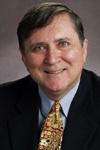
Ted Goertzel, co-author of Linus Pauling: A Life in Science and Politics (1995).
I believe that the personality patterns which Pauling displayed throughout his life developed in the period after his father's death when he was nine. He never really allowed himself to express the pain which he felt after his grandfather's and his father's deaths, perhaps because his relationship with his mother was not close enough to give him a feeling of security. Her own depression and ill health, coupled with the unfamiliar practical problems of providing support for the family, made it difficult for Belle to be attentive to her son's emotional needs. She was never as close to him as she was to her daughters. His father had admired him greatly, and encouraged his intellectuality. His mother, because of her illness and vulnerability as a widow, was not able to provide the same degree of support. [...]
From nine onwards, Linus channeled his energies into his hobbies and into part-time jobs designed to contribute to the family's expenses but also to give him a degree of independence from his mother. He was fascinated by the natural sciences, as are many boys of that age, and also discovered that he had a natural aptitude for academic work. He avoided close relationships with adults, whether teachers or relatives, but maintained friendships with other boys who shared his scientific interests and did not pressure him about family obligations.
The preoccupation with science may have had its origins at least in part in a need to sublimate emotional distress, but he was also good at it and realistic enough to recognize that scientific achievement could be an avenue to professional security as well as an absorbing escape from the rigors of everyday life. Whether through death, illness or insensitivity, adults had let him down. He was determined to make his way on his own.
By the age of twelve, Linus Pauling had already developed many of the behavior and personality patterns which he was to maintain throughout his life. He was introverted, intent on pursuing his own interests, and oblivious to conflicting demands from those around him. Emotionally, he was most comfortable when he could rely on a close relationship with one person for intimacy and support. The first special person was his boyhood friend Lloyd Jeffress, the second his wife Ava Helen Miller. His marriage to Ava Helen closely paralleled that of his own parents in its emphasis on closeness between the married couple having priority over parent-child relationships. It was a traditional marriage, with Ava Helen devoting her life to her husband's career and nurturing their children.
He found that he could use his intellectual brilliance to maintain independence from her and obtain approval from others. He married a woman who gave him the devotion he was unable to get from his mother.
Despite his tremendous success as a young scientist, Linus Pauling was never satisfied. Having won two Nobel Prizes, he felt he deserved a third. When his brilliance as a scientific innovator declined with age, he fell more and more into his second intellectual style [becoming emotionally committed to his ideas and seeking out evidence to support them]. In his later years, his combativeness and defensiveness increasingly triumphed over his brilliance and creativity.
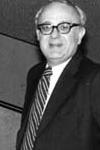
Derek Davenport, chemist and author of "Linus Pauling - Chemical Educator" (1980) and "Letters to F.J. Allen: An Informal Portrait of Linus Pauling" (1996) among other articles.
Pauling had agreed to speak at a G.N. Lewis symposium I had organized for the 1982 American Chemical Society meeting in Las Vegas. Ava Helen Pauling had died shortly before, and Pauling's secretary called asking that I meet him at the airport. He arrived jaunty as ever and chattered amiably during the short journey to the hotel. We entered the Hilton which was full of gambling, even gamboling, chemists. As we moved to the reception desk the crowd parted and fell silent. It was rather like following Moses across the Red Sea. Linus told the young lady at the counter: "You should have a reservation for Pauling." After finding the card, she asked sweetly "would that be a Linus Pauling?" "Yes, yes, Linus Pauling." "How do you intend to pay, sir?" "By VISA card." "I will need identification, sir." Pauling was nonplussed. He put on one of his dopiest grins, turned to the silent throngs on the casino floor, threw his arms wide, and implored rather than asked: "Don't I look like Linus Pauling?" The young lady was unimpressed and insisted on, and got, his driver's license.
I tell this story for several reasons, but principally to remind us that it was only in later years that he became a legend in his own time and on occasion in his own mind. I first heard him speak in 1948 in London when he was approaching the zenith of his astonishing scientific accomplishments, and half of his long life was already spent. He was the most charismatic chemist I had ever heard but there was no sign of the guru and no evidence of groupies. These came later as a consequence of his political persecution and his advocacy of Vitamin C. We must remember he was a man who did legendary science long before he became the Pauling of legend.
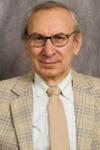
Robert Paradowski, author of The Structural Chemistry of Linus Pauling (1972) and Pauling's authorized biographer.
At an early stage of the writing of my biography of Pauling, I was having difficulty with what to do about what those close to him saw as his imperfections and failings, but whenever I brought these to his attention, he always defended himself adeptly and managed to mitigate their bite. As time went on, I began to wonder: Did he believe that all these criticisms from family, friends, and colleagues were wrong? So I asked him if he considered himself a saint. He said no, that he was very far from being a saint. I went on to ask what he considered to be his principal faults. He did not want to discuss them, fearing that, because of the subtlety and pervasiveness of human selfishness, the faults he did mention might conceal much deeper ones. I was impressed by his answer, which reminded me of the writings of such great saints as John of the Cross, who saw themselves in a never-ending struggle with their own great selfishness. If Pauling was unwilling to analyze his faults, he nevertheless expected critical analysis from his biographer. As he wrote to me in 1978: "There is no reason why statements critical of me should not be published." He certainly did not like having his faults pointed out, but when these criticisms were reasonably and compassionately treated, he seemed to accept them, even finding them helpful at times.
A concrete example of these criticisms is Pauling's egocentrism, which some found charming and others such a pervasive and corrupting part of his personality as to vitiate his worth as a good human being. An example of the first attitude was a member of the Linus Pauling Institute who told me that Pauling had the "knack" of turning whatever anyone said to him into himself in some way. If he could not do this, then he would quickly become bored and uninterested in the conversation. This observer assured me that he did not intend his remarks as a criticism of Pauling; they were simply a matter of objective description. To this person Pauling was, in his vanity, like a child, and no more to be condemned for it than a child would be. It was simply part of his nature, even part of his charm. Another person at the Institute once told me that the reason I got along so well with Pauling was that I was interested in a topic that utterly fascinated Pauling, namely, himself.
On the other hand, Pauling's self-centeredness was not so attractive to other members of his Institute. One person, whom I interviewed after he had left the Institute, had become discouraged with his relationship with Pauling because he could not get Pauling interested in any of his ideas. According to him, Pauling would pay only perfunctory attention to what he was doing. He recalled that the only time Pauling grew animated in a conversation was when he mentioned molybdenite. Then Pauling's interest was whetted, and this was, of course, because Pauling had written his first scientific paper on the crystal structure of molybdenite.
Filed under: Facets of Linus Pauling, Pauling-related Events | Tagged: Derek Davenport, Linus Pauling, Robert Paradowski, Ted Goertzel, Thomas Hager |
